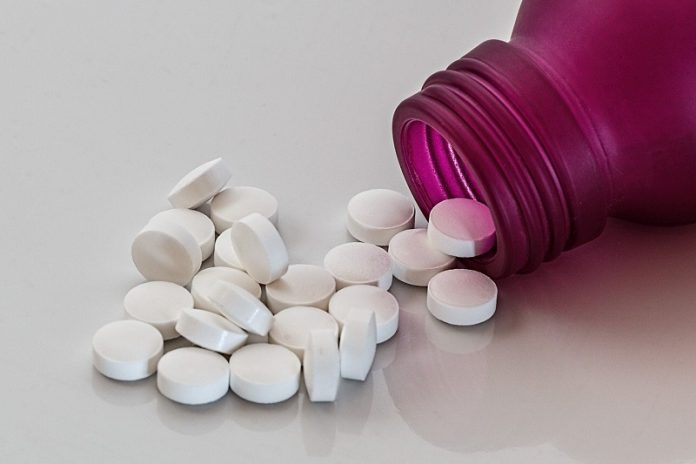
Opioids are the gold standard for the treatment of chronic and acute pain; however, their use may result in significant gastrointestinal side effects, including nausea, vomiting, and constipation. The reasons behind these side effects are not well understood.
Scientists from the University of Miami found how opioids like morphine cause gut inflammation.
They also found how this condition can be reversed through treatment with proton pump inhibitor (PPIs) drugs like omeprazole, an over-the-counter medication commonly used to reduce stomach acid.
The research is published in The American Journal of Pathology and was conducted by Sabita Roy et al.
Opioid users, compared with non-users, have a higher incidence of gastric dysfunction, greater levels of gastric retention, worse quality of life, increased hospitalizations, and increased use of antinausea and pain medications.
In the study, the team examined the effect of morphine on gastric inflammation.
They treated mice with morphine or a placebo.
They found that morphine-mediated gastric damage is a consequence of the accumulation of acid in the stomach due to increased gastric acid secretion and delayed gastric emptying, thereby increasing the retention time of acid in the stomach.
They also confirmed that the morphine-treated mice had delayed gastric emptying. Dramatic gastric damage included strong disruption of the gastric mucosal cells and increased gastric cell death.
The team also found treatment with naloxone, a synthetic drug that blocks opioids’ receptor function, reduced these effects in the morphine-treated mice.
The team hypothesized the cytokine IL-6 is involved in the regulation of opioid-induced delay in gastric emptying and gastric damage.
A quick increase in IL-6 after morphine treatment causes a delay in gastric emptying, leading to the accumulation of acid and resulting in gastric inflammation.
An important novel finding of this study is the proton pump inhibitor omeprazole with morphine provides gut protection by blocking gastric acid secretion, directly reducing gastric delaying and inflammation, and improving morphine tolerance.
The findings have clear clinical implications and suggest that omeprazole treatment at the time of morphine administration is a promising, safe, and inexpensive approach for reducing morphine-induced gastrointestinal pathology, improving morphine analgesic tolerance, and prolonging its efficacy as an analgesic agent.
If you care about gut health, please read studies about fruit that can boost your gut health, lower cholesterol levels, and this stuff in toothpaste can trigger gut inflammation.
For more information about gut diseases, please see recent studies that your vitamin D level may affect your gut health, and results showing this diet can boost your gut health effectively.
Copyright © 2022 Knowridge Science Report. All rights reserved.



